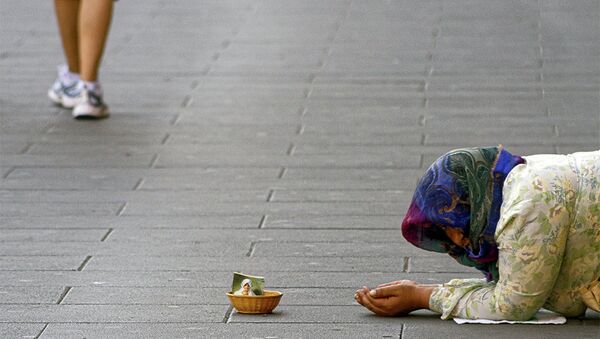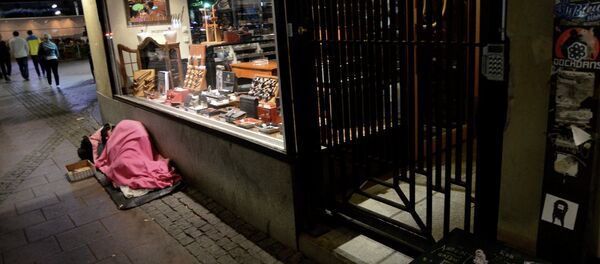As European Union migrants from Romania, the Roma are allowed to travel to Sweden as EU tourists without the need for a visa or a work permit. Many stay in the Nordic country as beggars, able to earn up to $25 a day begging on the streets.
A Romanian TV channel went to Stockholm and spoke to local beggars. They told the TV crew they make at least $20 a day and are given free soup. According to the report, their life in Stockholm is much better than back home in Romania. However, the newly-won rights of residence shroud a history of discrimination against the Roma.
Roma beggars Shantytown in Sweden 2015: https://t.co/3dMuiJy6qf via @YouTube
— Birgitta Bertilsson (@BirgittaBilou) March 25, 2015
Before the 1960s, according to the website EUobserver, most Swedish municipalities refused Roma the right of residence. This confined them to a nomadic life where they also lost the right to schooling for their children, healthcare, any welfare benefits and a state pension.
"Dark and Shameful History"
However, since accession into the EU, Roma beggars have become a common sight in the major cities of Stockholm, Gothenburg and Malmö in 2014. Now, growing numbers are making their way to the country's most northerly city Umeå, where temperatures regularly drop below —10C in winter.
.@TomHammarberg "countries should take example of Sweden and recognize their responsibilities in abuses towards Roma" http://t.co/wuLTn8HCW8
— ENAR Europe (@ENAREurope) March 25, 2015
According to Umeå City Council, in the north of Sweden, around 70 Roma beggars like Ciurar arrived in the region in 2014, which is home to around 118,000 people. Ciurar says he makes between 100 and 200 kronor a day (up to $25) from asking for money on the streets.
"In Romania I don't have a job. It's the same here. I worked a bit in construction but I make more money here begging."
"I am looking for work here, though," he said.
One of those 'professionals', named Konstantin, said the police in Sweden were much more tolerant to beggars now. "Even when they are on patrols in the area, they never say anything", says Konstantin.
This week, the Swedish government decided to begin an inquiry into the abuses suffered by Roma people in Sweden during the 1900s, which will be followed up by a commission on ongoing anti-gypsyism.
"This is a dark and shameful part of Swedish history," integration minister Erik Ullenhag said when presenting the paper.



